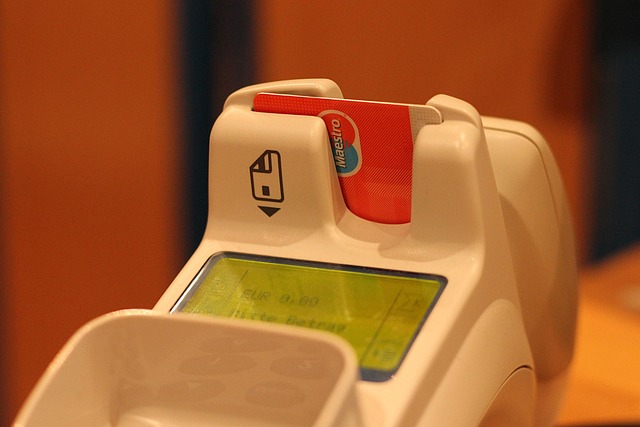The rental approval process involves rigorous background checks, including rental history and credit assessments, to evaluate potential tenants' financial responsibility and past tenancy performance. These checks play a pivotal role in determining approvals, shaping experiences for both landlords and tenants. While they offer landlords assurance, prospective tenants may find them stressful, but proactive management of financial profiles can enhance approval chances. The process aims to mitigate landlord risks but may inadvertently exclude certain applicants, highlighting the need for fairness and accessibility considerations.
Understanding how background checks influence the rental approval process is crucial for both landlords and potential tenants. This article delves into the intricate relationship between these checks and the rental application process, exploring key components such as credit and rental history assessments. By examining the impact of tenant background checks, we gain insights into balancing security with accessibility in today’s market. Weighing the pros and cons helps navigate the effects on prospective tenants, shedding light on a vital aspect of modern renting experiences.
- Understanding the Rental Application Process
- The Role of Background Checks in Renting
- Types of Checks: Credit and Rental History
- How Tenant Background Checks Impact Approval
- Weighing the Pros and Cons of Checks
- Navigating the Effects on Potential Tenants
Understanding the Rental Application Process

The rental approval process involves a series of steps designed to assess a potential tenant’s suitability for a property. It begins with the submission of a rental application, which typically includes personal information, employment details, and income verification. Landlords often conduct various background checks during this phase to gain a comprehensive understanding of the applicant. These checks include verifying rental history, reviewing credit reports, and conducting tenant background checks to ensure the applicant meets the necessary criteria.
Credit checks play a significant role in the rental application process as they provide insights into an individual’s financial responsibility. Landlords use these checks to gauge whether tenants can consistently meet their rental obligations. Similarly, rental history checks help property managers assess a prospective tenant’s past tenancy performance, including payment records and any incident reports. Understanding the impact of these background checks on renting is crucial for both landlords and tenants, as it influences the approval outcomes and the overall rental experience.
The Role of Background Checks in Renting

Background checks play a pivotal role in the rental approval process, helping landlords make informed decisions about prospective tenants. These thorough evaluations go beyond what’s presented on paper in rental applications. By delving into a tenant’s background, credit history, and previous rental records, landlords gain valuable insights into an individual’s reliability and financial stability.
Rental history checks and credit checks are common practices that allow landlords to assess the likelihood of timely rent payments and responsible property care. Tenant background checks provide a comprehensive view, often revealing details about past employment, residence, and even legal issues. This information is crucial for predicting how well a potential tenant will fit into the rental community and maintain the property’s integrity.
Types of Checks: Credit and Rental History

In the rental application process, both credit checks and rental history checks play a significant role in determining a potential tenant’s eligibility. These background checks are essential tools for landlords to assess risk and ensure their investment is protected.
A credit check involves evaluating an applicant’s financial health by reviewing their credit score and report. This provides insights into their borrowing history, repayment behavior, and overall financial stability. Conversely, rental history checks delve into a tenant’s past rental experiences, including timely rent payments, lease fulfillment, and any incident reports. Together, these checks offer a comprehensive view of an applicant’s reliability as a tenant.
How Tenant Background Checks Impact Approval

Tenant background checks play a pivotal role in shaping the entire rental application process. These thorough investigations delve into an applicant’s financial history, credit score, and previous rental experiences. By conducting rigorous background checks rental applications, landlords gain valuable insights into potential tenants’ reliability and responsibility. The impact of these checks on renting is profound; they help ensure that properties are rented to trustworthy individuals who can meet their financial obligations.
Landlords often use various tools for rental history checks and credit checks renting. These assessments enable them to make informed decisions, minimizing the risk of default or damage. Positive tenant background checks can expedite the approval process, while red flags may lead to further scrutiny or denial. As such, applicants should be transparent and accurate in their rental applications to avoid delays or rejections due to discrepancies in their tenant background checks.
Weighing the Pros and Cons of Checks

When it comes to the rental approval process, background checks play a pivotal role in evaluating potential tenants. These checks, which include credit and rental history assessments, offer landlords valuable insights into a candidate’s financial stability and past housing behavior. While they can help identify reliable renters, there are also potential drawbacks to consider.
The pros of tenant background checks are evident; they allow landlords to mitigate risks by uncovering red flags like outstanding debts or a history of eviction. Credit checks renting, in particular, provides a quantitative assessment of financial responsibility. However, the impact of these checks on renting may also result in excluded applicants who, despite having positive rental history checks, face credit issues or lack perfect credit scores. This raises concerns about fairness and accessibility, especially for individuals from underserved communities or those facing economic challenges.
Navigating the Effects on Potential Tenants

Navigating the Effects on Potential Tenants
For potential tenants, the inclusion of background and credit checks in the rental application process can be a double-edged sword. On one hand, these checks provide landlords with valuable insights into an applicant’s financial health and past behavior, ensuring they grant leases to responsible individuals who are less likely to default or cause property damage. However, many prospective tenants worry about the impact of these checks on their chances of securing a rental.
Rental history and credit checks play a significant role in the approval process, as they help landlords assess an applicant’s reliability. A good credit score and clean rental history can increase a tenant’s chances of approval, while discrepancies or negative items may lead to denials. It’s important for tenants to understand their rights and be proactive in maintaining a positive financial profile before applying for rentals.






